Circa 2018
Frogs partly regrew their hind legs after a dose of the female sex hormone progesterone was applied to the wound site for just one day.
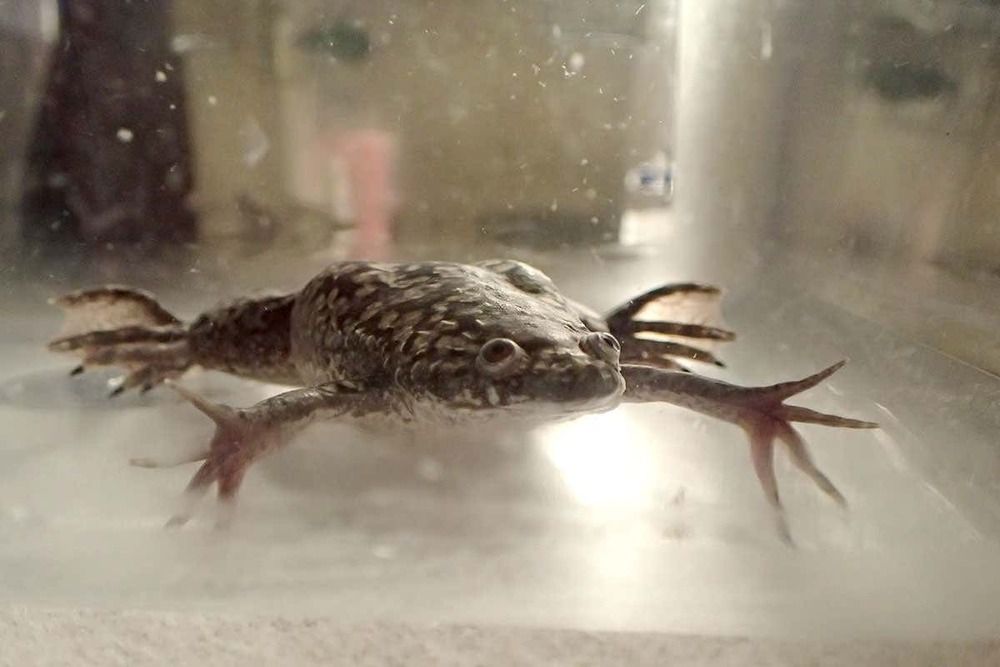

The Moon and Mars are remote and forbidding but it’s fairly easy to turn their soil into construction material and mine it for water to drink and oxygen to breathe.
Several astronauts have spent more than a year in zero gravity, and they experienced muscle loss, brittle bones and difficulties with vision. A space station could be spun up to ameliorate these problems, and for colonists on the Moon and Mars, gravity would be reduced, not absent. Their capillaries and cardiovascular systems would adjust, and muscle mass would be shed.
Few of us would relish living in the isolation and close confines of a bubble habitat far from home. The lack of a varied natural environment is likely to lead to weaker immune systems. However, the colonists will innovate in the activities of exercise and sex. Their space suits will be made from materials that are supple, supportive and skin-tight, and we might envy their ability to effortlessly leap and cavort across the surfaces of their new worlds.
If early colonies are restocked with new recruits from Earth, physiological changes will be modest. But subsequent waves of colonists may sever the umbilical; they might be dissidents or motivated by utopian ideals. As they live and die off-Earth, their psychological landscape will be sculpted by their new environment. Biologically, they will evolve into a new offshoot from the human tree.

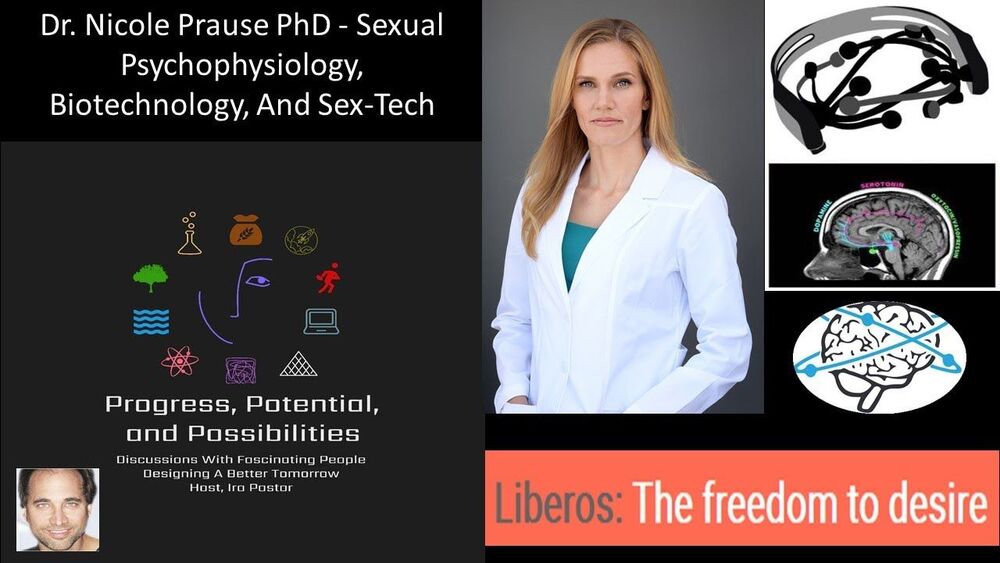
Dr. Nicole Prause, PhD is an American neuroscientist researching human sexual behavior, addiction, and the physiology of sexual response. She is also the founder of Liberos LLC, an independent research institute and biotechnology company.
Dr. Prause obtained her doctorate in 2007 at Indiana University Bloomington, with joint supervision by the Kinsey Institute for Research in Sex, Gender, and Reproduction, with her areas of concentration being neuroscience and statistics. Her clinical internship, in neuro-psychological assessment and behavioral medicine, was with the VA Boston Healthcare System’s Psychology Internship Training Program. Her research fellowship was in couples’ treatment of alcoholism was at Harvard University.
Dr. Prause became a tenure track faculty member at Idaho State University at the age of 29. After three years there, she accepted a position as a Research Scientist at the Mind Research Network, a neuro-imaging facility in Albuquerque, New Mexico.
In 2012, Dr. Prause was elected a full member of the International Academy of Sex Research and accepted a position as a Research Scientist on faculty at the University of California, Los Angeles in the David Geffen School of Medicine. While there, she was promoted to Associate Research Scientist in 2014.
Dr. Prause founded Liberos LLC in 2015 and she continues to practice as licensed psychologist in California.
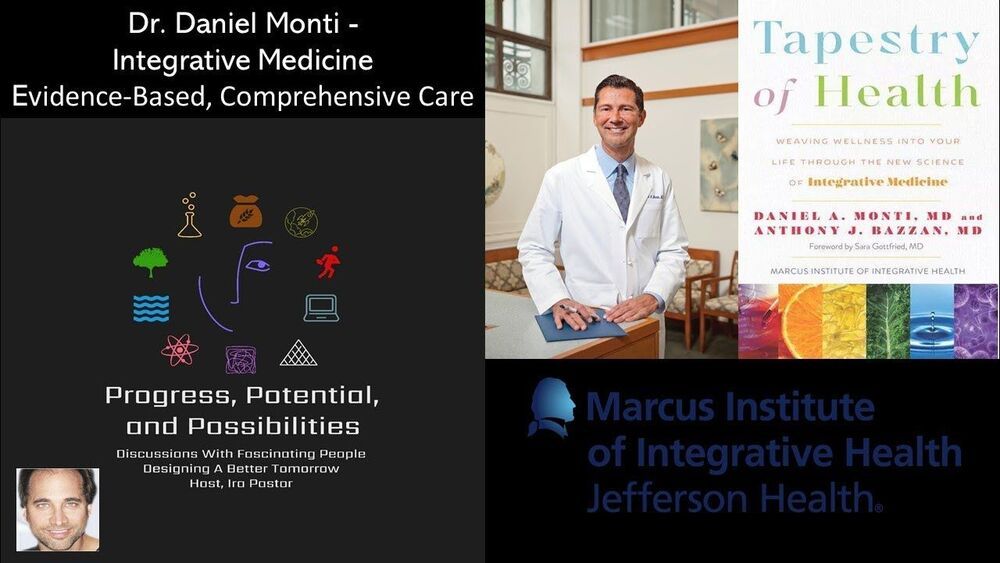
Exciting momentum!! — Home Depot Founder, Bernie Marcus (age 91), and the Adolph Coors Foundation (beer family), putting millions of $$$ into comprehensive integrative health and wellness — Good to see the trend!!
The Marcus Institute of Integrative Health was established in Philadelphia in 2017 by Thomas Jefferson University and Jefferson Health, and a multi-million $$$ grant from the Marcus Foundation (headed by it’s Chairman, Bernie Marcus, Co-Founder of The Home Depot) to expand the research, education and clinical care profile of Jefferson’s integrative medicine program, and to set the international standard of excellence in evidence-based, patient-centered integrative care.
The institute features a novel curriculum focusing on the clinical applications of integrative medicine with an emphasis on functional biochemistry, nutrient-based therapies, mind-body neuroscience, novel mechanisms of healing and emerging therapies.
Dr. Daniel Monti, MD, MBA is the Founding Director and Chief Executive Officer of the Marcus Institute of Integrative Health — Jefferson Health. He is also Professor and Founding Chair of the historic, first-ever Department of Integrative Medicine and Nutritional Sciences, Sidney Kimmel Medical College, Thomas Jefferson University.
Dr. Monti received his MD from The State University of New York at Buffalo School of Medicine. His Postdoctoral work was in the Research Scholars Program, Department of Psychiatry and Human Behavior, at Jefferson Medical College.
Dr. Monti works closely with his colleagues in the institute and department to continuously expand, refine, and define Integrative Medicine at Jefferson, including innovative clinical programs of excellence, cutting edge medical education, and world-class research. Dr. Monti has dozens of journal publications, international presentations, and media appearances.
He’s also an accomplished author with books including: “Integrative Psychiatry and Brain Health” (Weil Integrative Medicine Library) and “The Great Life Makeover: Weight, Mood, and Sex”.
His newest book, “Tapestry of Health: Weaving Wellness into Your Life Through the New Science of Integrative Medicine”, which was co-written with Dr. Anthony J. Bazzan, was just released in August 2020.
After controlling for various factors — such as participants’ age, sex, smoking status and activity level — the researchers found that taking glucosamine/chondroitin every day for a year or longer was associated with a 39 percent reduction in all-cause mortality.
It was also linked to a 65 percent reduction in cardiovascular-related deaths. That’s a category that includes deaths from stroke, coronary artery disease and heart disease, the United States’ biggest killer.” “He explains that because this is an epidemiological study — rather than a clinical trial — it doesn’t offer definitive proof that glucosamine/chondroitin makes death less likely. But he does call the results “encouraging.””.
Glucosamine supplements may reduce overall mortality about as well as regular exercise does, according to a new epidemiological study from West Virginia University.
“Does this mean that if you get off work at five o’clock one day, you should just skip the gym, take a glucosamine pill and go home instead?” said Dana King, professor and chair of the Department of Family Medicine, who led the study. “That’s not what we suggest. Keep exercising, but the thought that taking a pill would also be beneficial is intriguing.”
He and his research partner, Jun Xiang — a WVU health data analyst — assessed data from 16,686 adults who completed the National Health and Nutrition Examination Survey from 1999 to 2010. All of the participants were at least 40 years old. King and Xiang merged these data with 2015 mortality figures.

Newfound Autonomy
There are ways that a robot companion could outperform humans, Jecker says, by providing sympathetic and patient support free of judgment and condescension around the clock.
“It relates to issues of dignity,” Jecker told the Times. “The ability to be sexual at any age relates to your ability to have a life. Not just to survive, but to have a life, and do things that have value. Relationships. Bodily integrity. These things are a matter of dignity.”

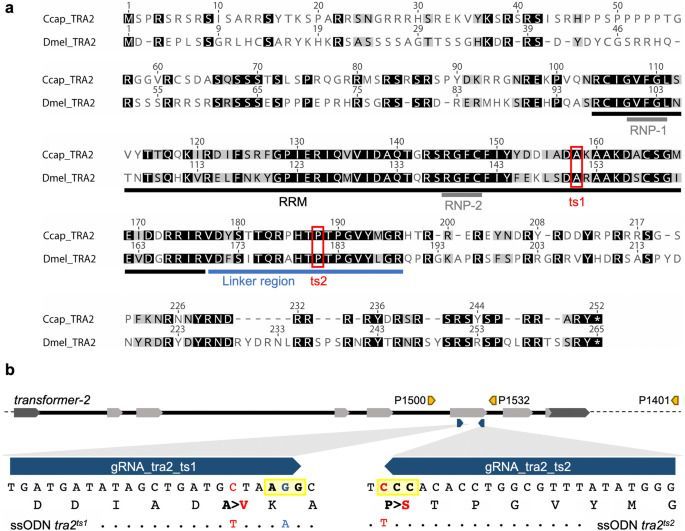
The Sterile Insect Technique (SIT) is based on the mass release of sterilized male insects to reduce the pest population size via infertile mating. Critical for all SIT programs is a conditional sexing strain to enable the cost-effective production of male-only populations. Compared to current female-elimination strategies based on killing or sex sorting, generating male-only offspring via sex conversion would be economically beneficial by doubling the male output. Temperature-sensitive mutations known from the D. melanogaster transformer-2 gene (tra2ts) induce sex conversion at restrictive temperatures, while regular breeding of mutant strains is possible at permissive temperatures. Since tra2 is a conserved sex determination gene in many Diptera, including the major agricultural pest Ceratitis capitata, it is a promising candidate for the creation of a conditional sex conversion strategy in this Tephritid. Here, CRISPR/Cas9 homology-directed repair was used to induce the D. melanogaster-specific tra2ts SNPs in Cctra2. 100% female to male conversion was successfully achieved in flies homozygous for the tra2ts2 mutation. However, it was not possible, to identify a permissive temperature for the mutation allowing the rearing of a tra2ts2 homozygous line, as lowering the temperature below 18.5 °C interferes with regular breeding of the flies.
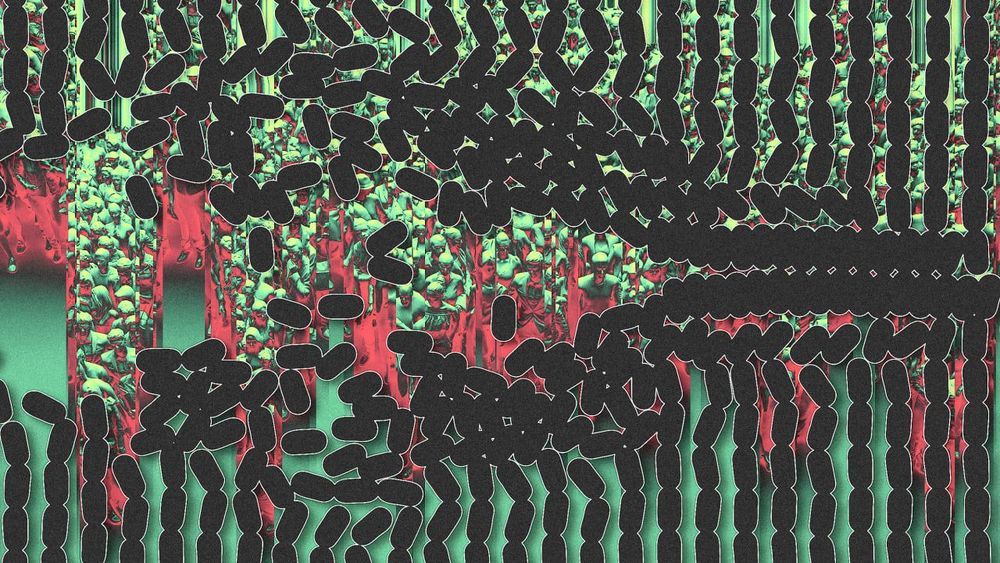
The next decade is going to be a transforming decade as many many technologies (some of which we all like to share in this group) are converging and maturing enough to rearrange our society in almost any aspect we can conceive.
I’m calling to those who are interested in creating and implementing an alternative model for the current social and governance systems, let’s build an open state that we can all support and trust regardless of our age, sex, geographical location, or belief system.
In the next 10 years, key technologies will converge to completely disrupt the five foundational sectors—information, energy, food, transportation, and materials—that underpin our global economy. We need to make sure the disruption benefits everyone.